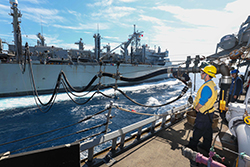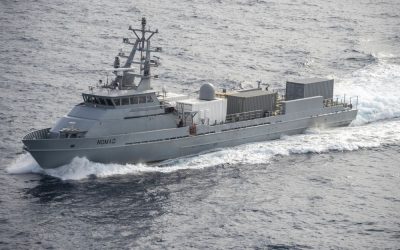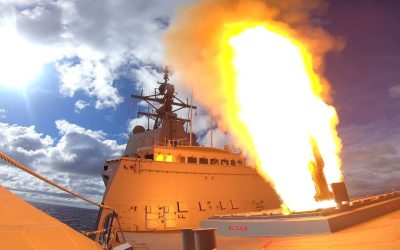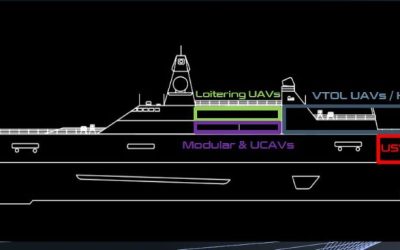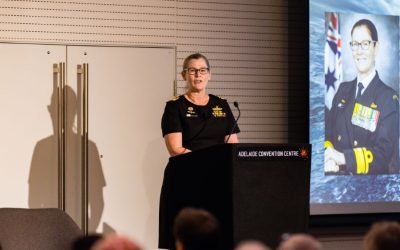But not without design and operational adaptations
Low carbon fuels and pathways to decarbonise shipping have become a major topic of conversation. In the naval sphere, the discussion is only now getting going, but a study by BMT in the UK suggests that, as in the commercial sector, methanol could offer a way forward.
In a paper given at RINA’s Warship 2022 conference entitled ‘The viability of low-carbon fuels & green technologies for the front-line naval vessel,’ Simon Newman, principal engineer, and Thomas Bear, senior analysis engineer at BMT analysed the potential of a number of low carbon fuels and green technologies that might be applicable to the unique requirements of warships.
With the global drive to decarbonise in mind, their paper explored what evolving, largely commercial shipping-led, ‘green’ solutions might realistically be applied to a front-line naval vessel, and what operational compromises might be required to fulfil green ambitions. Their paper concluded by investigating what a reduced-emission frigate might look like by examining ship design guidelines for methanol fuel.
As they noted, the decarbonisation of the commercial marine sector is starting to pick up pace, with numerous fuels and technologies being developed, trialled, and implemented, but front-line naval vessels have unique requirements and constraints that differ to those for commercial shipping. “It is not possible to just fast-follow,” they said. “There need to be tailored solutions that work for defence, ideally taken from, or accelerated by, commercial innovation.”
Given that ‘drop-in’ diesel-substitute fuels offer the minimum vessel and operational impact, focus should be given to securing those, BMT’s experts argue.
However, if an alternative such as methanol becomes the fuel of choice for navies going forward, then there will be operational compromises – such as reduced range – which will have to be accepted, along with significant adaptation costs both at platform and replenishment at sea (RAS) infrastructure.
